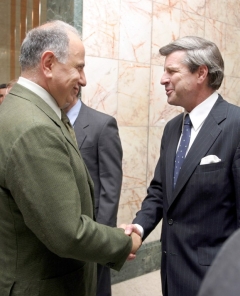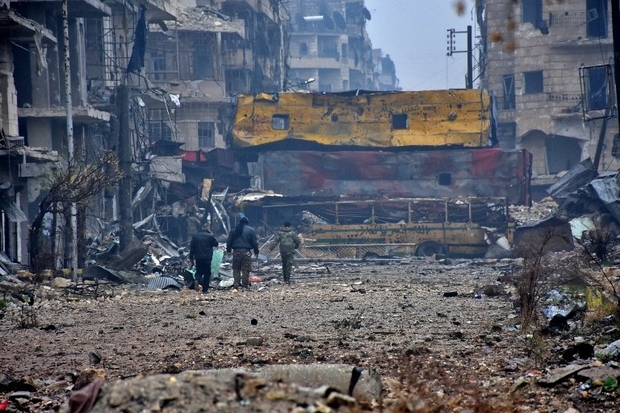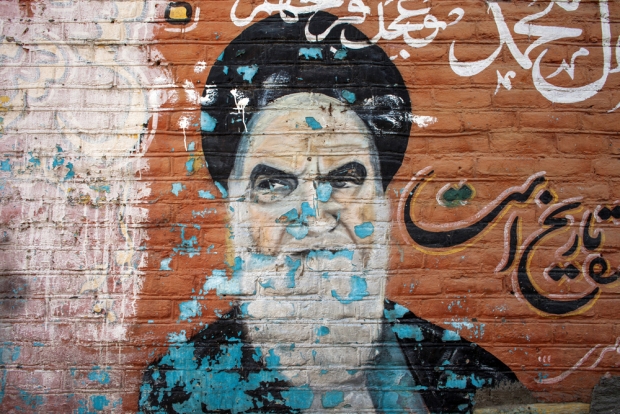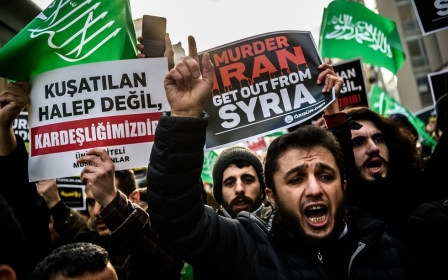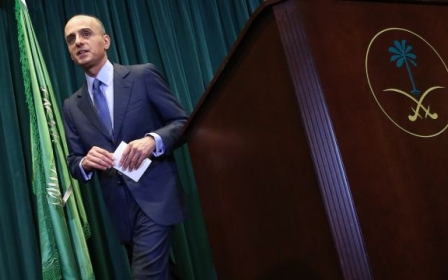Iran's sectarian wars must be confronted, but not with more of the same
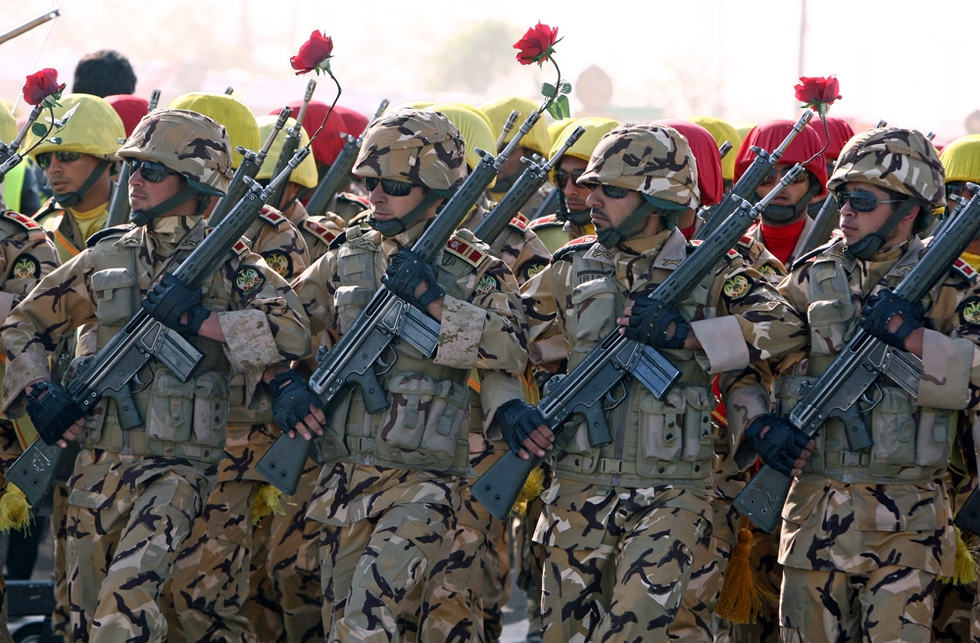
The Iranians and their Arab friends deny that their militias in Syria are sectarian. They say Iran stands by the Syrian regime because it is part of the resistance to Israel. Should this regime fall, they claim, the region would be dominated by the Israelis and Americans.
It is as if the Syrians cannot be trusted with the affairs of their own country and should not be allowed to make political choices in their own state
After six years drenched in Syrian blood, it is astonishing that such political heresy endures as the official rhetoric of Iran and its allies.
Such a claim amounts to a denunciation of the entire Syrian people. It is as if the Syrians cannot be trusted with the affairs of their own country and should not be allowed to make political choices in their own state.
The Bashar al-Assad regime alone, his Shia supporters believe, can be trusted with resistance, while the Syrian people, who have endured, during the past century, more than most the burdens of the great Arab cause, cannot.
Such claims erase the facts of history.
From Afghanistan to Iraq . . .
Iran's regional expansion dates back to 2001, when it welcomed the US invasion of Afghanistan. Iran then encouraged its Shia political allies in Iraq to collaborate with the Americans when preparations for invasion in 2002 and early 2003 were underway. While Iranian co-operation with the Bush administration in Afghanistan was covert, Shia Iraqi leaders travelled publicly from Tehran to London and Washington to meet American officials.
In the following years, the Shia Iraqi forces emerged as the principal ally of the occupation and a tool to rebuild the Iraqi state. Rare clashes between the two sides occurred when Shia leaders thought, on a few occasions, that the Americans were reneging on their promises or were reconsidering the policy of handing over Iraq to them.
In 2012, when Iraqis took to the streets in popular rallies making what were, by all standards, limited and humble demands, Iran supported the brutal methods employed by Maliki to suppress the protest movement.
... to Syria
And by this time, Iran's ambitions had widened. Tehran showed full support for Bashar al-Assad from the outset of protests against him in 2011. No state, neither those considered Iran's foes, such as the Gulf states and Egypt, nor among those who maintained good relations with Iran, such as Turkey, showed any tangible support for the protesters.
Time and again, and despite repeated Turkish appeals, the Iranians showed an iron resolve that the Assad regime should remain in absolute control
The Syrian protests at this time had not yet evolved into an armed conflict, and there was no Nusra Front or Islamic State (IS). Many states, such as Qatar and Turkey, whose leaders had built close relationships with Assad, exerted huge efforts to persuade him to refrain from bloodshed and meet the protesters' democratic demands half way.
No one in the region at the time called for end of the regime or the overthrow of Assad.
At the same time, mediation attempts were launched by various Arab circles, and Syrian businessmen who lived abroad, but were supportive of the Assad regime. In one of those attempts, a Syrian businessman proposed a draft constitution that laid the foundation for modest reform of the regime without bringing it down.
There was no explanation for the Iranian position other than anxiety that any concessions, even if limited, could lead to further deterioration in the the position of the Alawite ruling clique.
Neglecting local aspirations
The Iranian stance in Yemen was no less sectarian than it was in Iraq and Syria.
The Yemeni revolution of 2011-12 and the fall of president, Ali Abdullah Saleh, provided an unprecedented opportunity for the Houthi movement to end decades of conflict and join the Yemeni political community.
The majority of Yemenis hoped for a new era of transition and partnership that embraced a wide range of political forces in the country. However, the Houthis and their friends in Tehran had other ideas. Only months into a transitional period, the Houthis moved to seize control of the state and subject all to its sectarian authority.
Neither the Houthis, a fringe Shia-Zaidi group, nor the Iranians, showed any moral objection to an alliance with the deposed president, against whose regime they had previously waged a series of wars.
Iran has played the role of the counterrevolutionary force in Iraq, Syria and Yemen without any concern for the aspirations and sacrifices of their peoples.
Conversely in Bahrain, Iran stood by the popular Shia protest movement against the Sunni ruling family.
Sectarian from the start
In its essence, the modern state is a political entity; it is not Christian, Shia or Sunni. Yet the frame of reference for the Iranian expansionist project was sectarian from the start.
By virtue of its sectarian inclinations, this project has generated deep and costly divisions within Arab societies, especially those with sectarian diversity, and precipitated hatred and animosity.
Yet, such confrontation may never achieve its objective if it misreads the real nature of the referential framework of the Iranian expansionist policies.![]()
- Basheer Nafi is a senior research fellow at the Al Jazeera Centre for Studies.
The views expressed in this article belong to the author and do not necessarily reflect the editorial policy of Middle East Eye.
Photo: Iranian soldiers march through Tehran shout during a parade in 2012 (AFP)
This article is available in French on Middle East Eye French edition.
New MEE newsletter: Jerusalem Dispatch
Sign up to get the latest insights and analysis on Israel-Palestine, alongside Turkey Unpacked and other MEE newsletters
Middle East Eye delivers independent and unrivalled coverage and analysis of the Middle East, North Africa and beyond. To learn more about republishing this content and the associated fees, please fill out this form. More about MEE can be found here.



